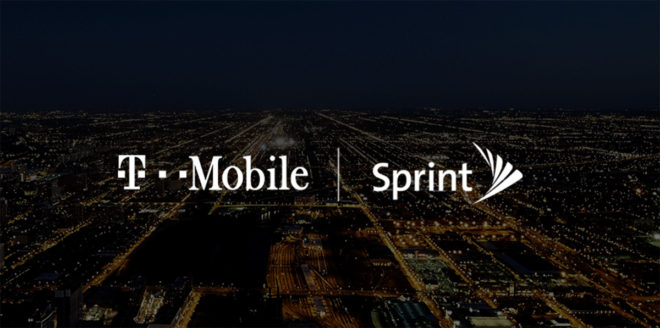T-Mobile places focus on being more competitive in latest Sprint merger filing with FCC

When T-Mobile and Sprint first announced their proposed merger, 5G was a major focus of their arguments in support of the deal. They even created called their website www.Allfor5G.com and used the #5GforAll hashtag. Now the two companies may be shifting gears and making a different argument a major focus.
A new document recently filed to the FCC by T-Mobile places a focus on arguing that it needs to merge with Sprint to help it better compete with AT&T and Verizon. The doc is lengthy, coming in at 136 pages, and while a lot of it is heavily redacted, it’s clear that T-Mo is arguing that combining with Sprint will help to increase competition in the U.S. wireless market.
“The merging parties’ rationale for the proposed merger is to combine complementary T-Mobile and Sprint assets so as to better compete with the two historical leaders, AT&T and Verizon,” T-Mo says. “In particular, the merging parties expect that the New T-Mobile network will provide better performance for more consumers than the T-Mobile and Sprint standalones, with higher network quality and lower marginal costs.”
Some analysts suggest that T-Mobile may have filed this new document because regulators weren’t very receptive to their previous arguments. Andrew Schartzman, an expert in telecommunications law, told Bloomberg that the filing may suggest that T-Mo and Sprint ran into resistance from regulators and are trying their luck with a new argument. Schartzman added that the deal still faces “fundamental obstacles”.
Meanwhile, Blair Levin, a former FCC chief of staff who’s now with the public policy group the Brookings Institution, has said that T-Mobile and Sprint’s “first filing was not sufficient.” “So the question is will incremental changes put it over the top? Or is the government suggesting that while the companies should get a second bite at the apple, their case has a serious flaw?”
T-Mobile and Sprint have remained confident that their proposed merger will be approved. The companies have said before that they expect the deal to close in the first half of 2019, but T-Mo CFO Braxton Carter recently suggested that it could happen as early as Q1 2019. The deal is still under review by regulators, with the FCC recently saying that it plans to restart its informal 180-day clock on its review of the merger after it received “substantial body of new material on economic issues central to the review of the proposed transaction.”
